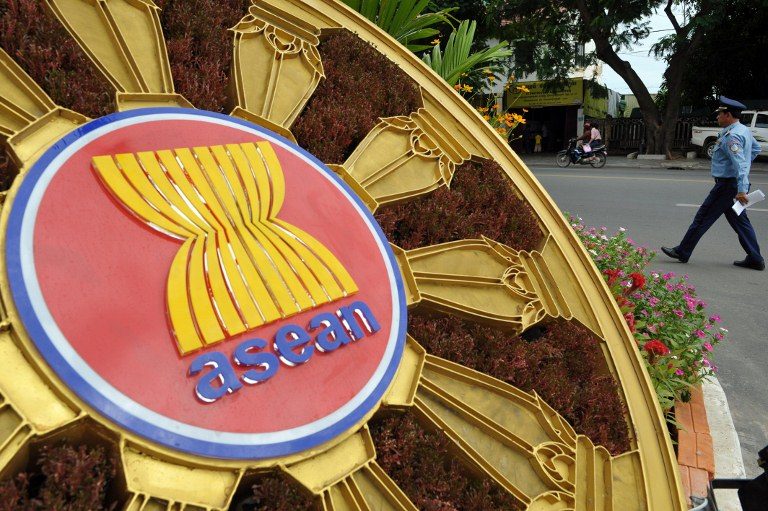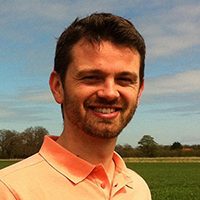SUMMARY
This is AI generated summarization, which may have errors. For context, always refer to the full article.

MANILA, Philippines – The behavior of business shapes our lives – and this is especially true for people living in poverty.
Whether you are a worker dependent on a wage, a farmer selling produce, a consumer buying food, or a community sharing water resources with a company, the actions of business can lead to further entrenchment of poverty, or a path out of it.
The DNA of companies across ASEAN (Association of Southeast Asian Nations) can be pro-poor, inclusive, and fundamentally fair. But it requires us to ask some questions about the type of business world we want to create.
As ASEAN leaders increasingly look to investment from business to generate the jobs that are needed, the challenge will be on how policies shape the investment and the evolving business world in the region, so that it works for the poor. (READ: Asia needs to help the poor more, say philanthropists)
More investment is needed, but better business is also critical.
To achieve a more responsible business community, there is no sector more important than agriculture. It continues to provide a livelihood for millions (over 30% in most, and over 50% in some countries in ASEAN), many of which are struggling to escape poverty.
The sector also feeds the hundreds of millions across the ASEAN, driving the region’s food security. Meanwhile, young people are deserting farms en masse. (READ: Agripreneurs to youth: Get your feet wet in agribusiness)
The average age of farmers is rising rapidly across the region, with average ages of over 50 years in many countries. ASEAN’s farmers need to earn more from their labors, which requires fairer supply chains, while ASEAN’s people need their farmers to keep growing their food.
Making inclusive business
This is why creating and shaping an agri-business sector that works for farmers and their communities holds the key to a better and more food-secure future in the ASEAN. But what does this mean for policymakers? In short, it requires a vision on two fronts.
First: a vision of a business world that behaves fairly, inclusively, and sustainably. It means businesses that support the productivity and prosperity of farmers, respect human rights, and pay a living wage to workers.
It also entails businesses that use natural resources sustainably. This is essentially about the behaviour of businesses, how they incentivise their staff to act – whether they put pressure on their decision-makers to absolutely maximize every rupiah, ringgit, peso, baht or dong of profit over treating farmers, workers, and communities better.
At a minimum, it is about companies fulfilling their obligation to respect human rights, and governments protecting these rights, and a range of actors providing access to remedy. This is set out in the now widely accepted United Nations (UN) Guiding Principles for Business and Human Rights.
But it is also about more than human rights. It is about how businesses work in the best interests of society, operationalized through their culture, the values they espouse to, the purpose they commit to, and the management and governance systems that drive their decisions.
Second, it requires a vision of a business world that shares profits most widely – with workers, communities and farmers.
To stem the tide of rising inequality in ASEAN, the fruits of economic growth need to be shared as widely as possible. And there are business models that mean the workers, farmers, and communities get a greater slice of the growing ASEAN pie.
These business models not only include co-operatives but also social enterprises and purpose-driven businesses, both small and large.
Not all businesses are created equal
Overall, it requires policy-makers to realize that not all businesses are created equal – that there are corporate and enterprise models that have a different DNA.
Some businesses are equipped to behave more responsibly and are set up to share their profits more widely. It is for policy-makers to promote these business models and shape the business world in the interests of society.
ASEAN is seeing a new breed of companies emerge, from social enterprises in the Philippines, to farmer-owned enterprises in Indonesia, to community-owned fishing businesses in Thailand, we are seeing companies that are set up differently. These businesses behave more responsibly toward workers, farmers, and communities; and spread the wealth they generate widely.
Historically dominated by family-owned businesses, the ASEAN business community has always looked different to the rest of the world.(READ: Sy, Ayala, Aboitiz in Forbes’ list of Asia’s richest families)
It has had its own ASEAN way in business. When it comes to responsible business and investment, it can also pave its own path, building on the deep-rooted entrepreneurship of communities and farmers alike to ensure it fosters a business DNA that naturally does what is fair, inclusive, and sustainable.
Thus, ASEAN Responsible Business Forum kicks off in Kuala Lumpur, Malaysia on Tuesday, October 27 (and will run until October 29). It is a high-level regional platform with a theme this year of “Promoting responsible business practice in the ASEAN Economic Community.” The event is co-organized by the ASEAN CSR Network, Oxfam, the Federation of Malaysian Manufacturers, and the ASEAN Foundation.
And with ASEAN on the brink of entering a new era of economic cooperation and growth, it can be more deliberate and targeted in shaping a more responsible business world. The time is now to think about what the business world needs to look like in that brighter future. – Rappler.com
Check the website for more information about 2015’s ASEAN Responsible Business Forum
 Erinch Sahan is a senior policy adviser on business and markets for Oxfam GB Asia. Since 2011, Erinch has been working across Oxfam’s program and campaigning work on food and climate justice. He specializes in the links between business and poverty, with a focus on agriculture and the rural economy.
Erinch Sahan is a senior policy adviser on business and markets for Oxfam GB Asia. Since 2011, Erinch has been working across Oxfam’s program and campaigning work on food and climate justice. He specializes in the links between business and poverty, with a focus on agriculture and the rural economy.
Add a comment
How does this make you feel?
There are no comments yet. Add your comment to start the conversation.